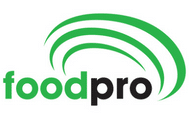Speaker Presentations 2023
Sunday 23 July
12:00 – 12:30 – Exploring need for food marketing to go beyond packaging, Rachael Hedges SEE PRESENTATION
13.00-13.30 – Cryogenic freezing addressing food safety and spoilage concerns, Fumie Hokao SEE PRESENTATION
14.30-15.15 – AIP sustainable packaging for the meat industry, Panel SEE PRESENTATION
Monday 24 July
12.00-12.30 – APCO’s Australisian recycling programme, Sarah Sannen SEE PRESENTATION
13.00-13.30 – Everything you need to know about precision fermentation, Joe Liu SEE PRESENTATION
14.00-14.30 – Good for business, people and the planet, Katherine Gokavi-Whaley SEE PRESENTATION
Tuesday 25 July
11.30-12.15 – AIP Sustainable packaging design for the food industry, Panel SEE PRESENTATION
13.00 – 13.30 – Leveraging bio-based food ingredient solutions to reduce food waste, Eugene Seah SEE PRESENTATION
15.00 – 15.30 – The sustainability motor for decarbonation promises, Martin Orzinski SEE PRESENTATION
Wednesday 26 July
13.00-13.30 – How smart packaging unwraps a new world for consumer brands, Anna Di Bello SEE PRESENTATION






















